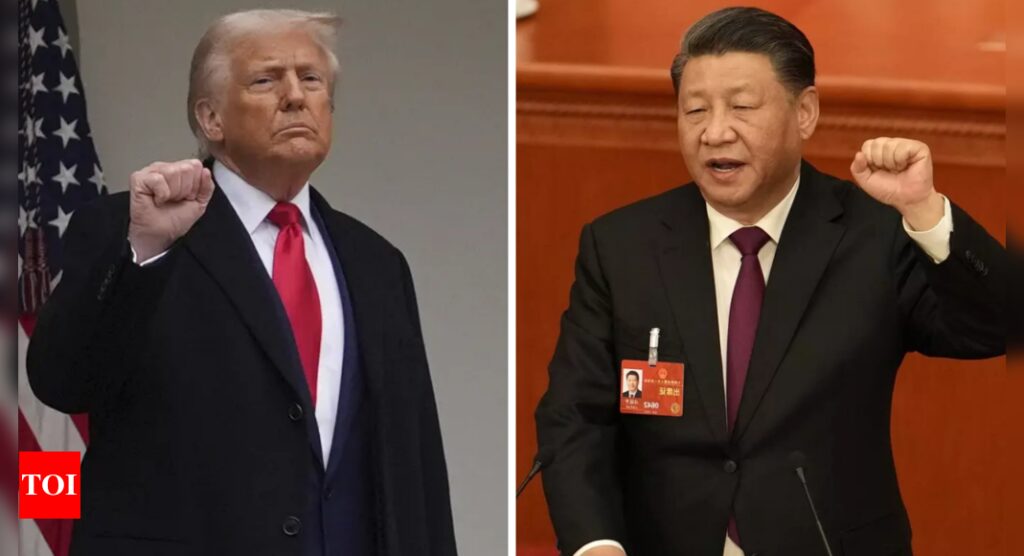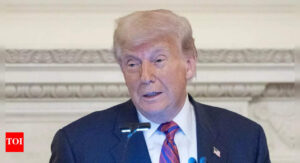US-China trade war intensifies: Beijing raises tariffs on US goods to 84% after Trump’s 104% duty move

The US-China trade war deepened dramatically on Wednesday as Beijing announced a sweeping hike in tariffs on American goods, raising rates from 34% to 84%, just a day after President Donald Trump’s new 104% tariffs on Chinese imports came into force.
Calling the US action a violation of trade norms and a threat to global stability, China’s finance ministry said the new tariffs will take effect from 12:01 pm Thursday.
The move comes alongside a flurry of retaliatory steps, including blacklisting six US artificial intelligence firms and adding 11 others to its “unreliable entities” list—effectively restricting their access to Chinese technology.
“The tariff escalation against China by the United States simply piles mistakes on top of mistakes and severely infringes on China’s legitimate rights and interests,” the finance ministry said in a strongly worded statement.
China also announced it was launching a fresh lawsuit against the US at the World Trade Organization and reiterated its readiness to “fight to the end” if Washington escalates further.
Trump’s latest tariff salvo, which came into force Wednesday, targets dozens of countries but hits Chinese goods the hardest. Beijing fired back swiftly, arguing the tariffs were based on an outdated understanding of trade imbalances. A white paper released by the Chinese Ministry of Commerce emphasized that once services and corporate operations are included, US-China trade is “roughly in balance.”
China said it ran a $26.57 billion trade-in-services deficit with the US in 2023, mainly from industries like finance, insurance, and professional services.
The commerce ministry also accused Washington of failing to honor the Phase 1 trade deal signed during Trump’s first term. The US law requiring TikTok’s parent company ByteDance to divest the app or face a ban was cited as an example of “coercion” and “forced technology transfer.”
“History and facts have proven that the United States’ increase in tariffs will not solve its own problems,” the white paper noted, warning the move would raise US inflation, disrupt global supply chains, and risk pushing the US economy toward recession.
While several countries have sought negotiations with the White House, China has stayed firm. “If the US truly wants to resolve issues through dialogue and negotiation, it should adopt an attitude of equality, respect, and mutual benefit,” said foreign ministry spokesperson Lin Jian.








